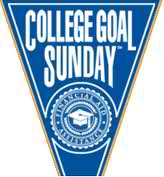Can You Negotiate Merit Aid?
Posted on Tue, 01/31/2012 - 16:59 Financial aid -- need-based and merit -- is much on the minds of students and parents these days. As we get questions on these subjects, we will be posting responses here as blog post when we feel they may be helpful to a range of our readers Today we answer one of our readers who posed this question in response to an earlier post titled "Can You Negotiate Merit Aid?"
Financial aid -- need-based and merit -- is much on the minds of students and parents these days. As we get questions on these subjects, we will be posting responses here as blog post when we feel they may be helpful to a range of our readers Today we answer one of our readers who posed this question in response to an earlier post titled "Can You Negotiate Merit Aid?"
Darryl wrote: St.John University offered my son a 10k merit award. He also was accepted to Howard University. His first choice is Howard. Can I use the 10k merit award from St. John University as a bargaining chip so Howard could match or make a counter-offer?
Different colleges will handle this differently. Some schools will be flexible. For other schools, merit aid awards are final and non-negotiable, as noted by Purdue University's Pamela Horne in the article in this post.
However, colleges usually welcome all information about a student's financial situation. So it doesn't hurt to ask. But how you approach the college is key.












